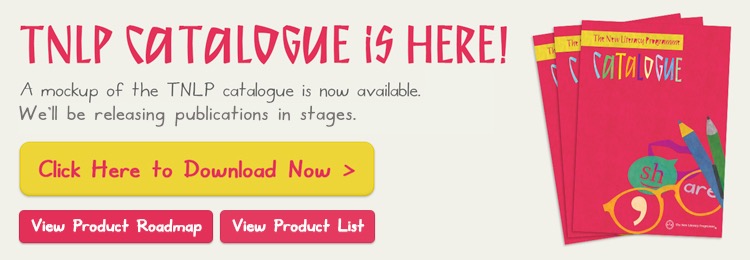How TNLP is new and different...
Phonics or whole word?
We explain below
Our Purposes
The New Literacy Programme™ (TNLP) recognises that language and literacy enable self-expression, better relationships, education, gainful employment, civic participation, greater concord between people and other human rights that people are naturally entitled to. We aim
- to enable increased connection amongst people through effective communication using language and literacy.
- to make effective and affordable learning materials and teaching methods available to as many people as possible, starting with English as the most used language today.
- to do our best to spread the best we know to further the goals of true language and literacy for all people.
Our Principles
Principle 1
As a matter of human right, all people are equally entitled to the languages and literacies they need to get along well in all aspects of their lives.
Principle 2
New languages should be learned in ways that fortify Learners’ existing and indigenous languages.
Principle 3
We oppose mandatory teaching of language. We oppose teaching language with the purpose of changing Learners’ culture or belief systems.
Principle 4
We support learning by inquiry and analysis, following the Learner’s line of interest, not learning by rote, memorising or guessing.
Principle 5
We teach by posing questions that interest the Learner and through further questions helping them arrive at answers. We emphasise learning through demonstration where possible.
Principle 6
Since learning can’t take place when people are unhappy or overwhelmed, we emphasise positive, creative or helpful reading matter in our classes.
Principle 7
We don’t comment on any Learner’s supposed shortcomings. We support them by ensuring they work at the right level for them, through positive acknowledgment of their progress and by helping them identify and address any barriers that arise, so they move forward at a pace they are comfortable with.
Principle 8
We don’t set Learners up in competition with each other. Where Learners wish to compete in a spirit of play, that’s different.
Principle 9
We aim to have minimal impact on the natural environment through our work and to preserve it also.
Principle 10
We require Learners to acquire only the materials and courses they reasonably need to move forward.
Phonics or Whole Word?
YES
People often ask us at The New Literacy Programme©™: Are you pro 'phonics' or 'whole word'/'whole language'?
It’s like asking whether you are pro food or water.
This polarisation of beliefs about teaching method, the ‘Literacy Wars’, is harmful to people and affects resources hugely. The wars came about, mainly, because English wasn’t well enough explained or understood to dish it up comprehensively, or in a suitable order, for Learners.
Teachers were understandably overwhelmed and turned to emphasising one aspect or another, depending on what they had affinity for, or what they felt they could cope with. The main aspects, chosen, were their idea of phonics or their idea of teaching by whole words. Over time, defensive lines went up. Fights for resources began.
It has gone on for decades.
But the phonetic analysis of English was half-baked and had errors. The 'whole word' approach was too demanding of Learners. No one wins from these wars. A workable system uses both approaches as needed.
Language begins naturally with whole spoken words. They’re easier to master and faster at delivering meaning. The whole reason we ‘go to the mountain’ is to turn on meaning - ‘mountain’, ‘sky’, ‘climb’, ‘terror’, ‘summit’, ‘scramble’, ‘glory’ and so on. Whole words act as carrier waves for speech sounds, which code for conceptual meanings. And an element of phonics is needed for Learners to hear and say the words.
Once a person has a fair store of spoken words, they naturally get very interested in how words look written down, because reading puts them in charge of when and what meanings they access.
Phonics then contributes, again, in an astonishing show. It displays for us, a code ‘system of systems’, by which every written English word (a million or so) maps onto its spoken equivalent. This opens a door to a massive Spring garden of whole words and whole language, flowering at our command and responding perpetually. But that complete garden is only recently available.
English teaching has become so random, there are even people calling themselves phonics teachers, who say that only about half of English surrenders to phonics analysis and the rest must be learned by heart! Actually, not phonics, then.
Reason and order (science, if you like) is progressively entering in.
We, at TNLP, worked to fill every gap we found in understanding English. We discovered how every English word (bar one) maps nicely onto its speech sounds. We found ways to introduce Learners to the language and writing, using whole words and whole language at a more comfortable pace. The order calms Learners. They learn faster.
Now that phonics is gaining powerful supporters, some 'whole word' people are looking again and seeing how it might be of help to them as teachers. Others are forming a resistance movement.
It’s really time for all of us, who value education and value people, to openly and repeatedly, acknowledge and thank all these teachers and trainers for their dedication to their Learners.
It’s time to acknowledge that both ‘sides’ in this war are worthy. They have always wanted the best for Learners. None ever meant harm and all deserve our thanks for going on trying their very best, in almost impossible circumstances.
And it’s time to think about how wonderful it could be, if this war was declared over and all these talented and dedicated people came back to schools and worked together.
Katherine Beauchamp, August 2024
Our legal status
The New Literacy Programme™ was incorporated as an Australian Proprietary Company in 2011. We operate as a not for profit. Our Advisors act in a pro bono capacity. Any profit, after operating costs, goes back into the development of the literacy programme and its materials.
